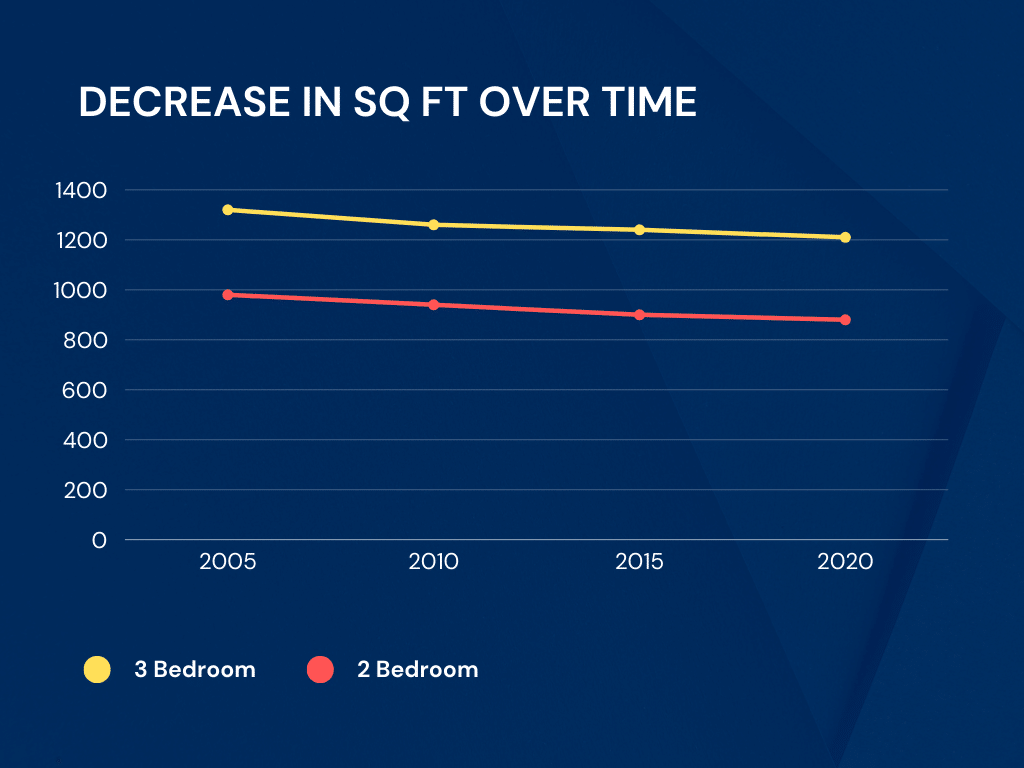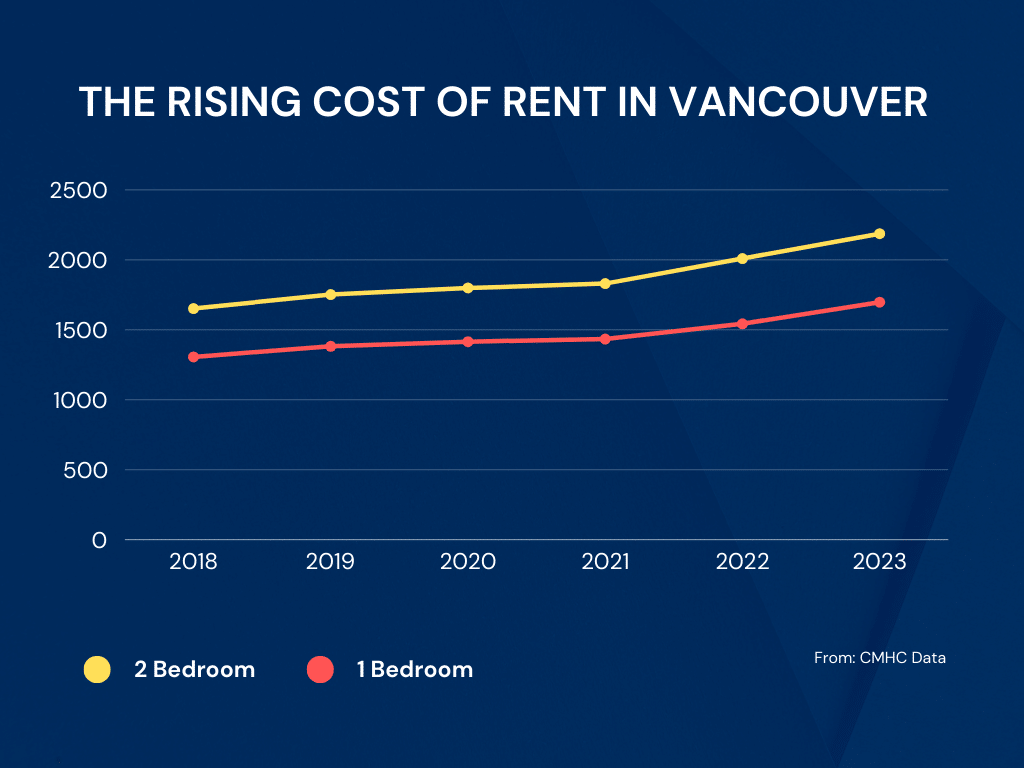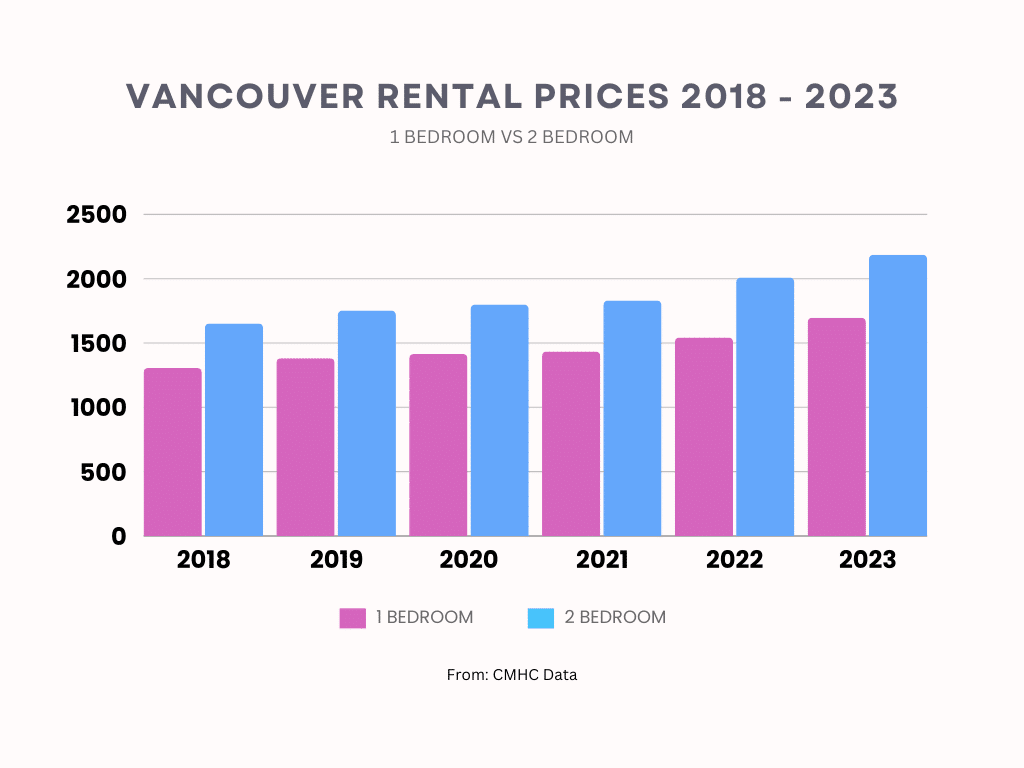How Vancouver Renters Are Dealing With the Space Crunch
Vancouver is known for its breathtaking views, vibrant culture, and unfortunately, its skyrocketing rental prices. As the city becomes more urbanized and apartments shrink, renters are increasingly struggling with space constraints. This trend has sparked a growing conversation about how Vancouverites can navigate these challenges while staying in the city.
Decrease in Square Footage Over Time
Over the years, Vancouver has seen a steady decrease in the average size of rental units. particularly for 2 and 3 bedroom apartments, as the demand for more affordable and centrally located housing has increased. Because of the shift driven by the desire to accommodate more tenants in limited spaces, units built in the last decade have seen reductions in average sizes. For instance, average 3-bedroom units are now significantly smaller compared to older builds, a trend similar to what is seen in other cities facing similar housing pressures.
This reduction highlights the growing demand for space in a city where land availability is limited and housing prices continue to soar. As developers respond to market pressures, space-efficient designs have become crucial. For many Vancouverites, maximizing every square foot is essential, not only for comfort but for practicality.

The Rising Cost of Renting in Vancouver
Vancouver consistently ranks as one of the most expensive cities in Canada to rent in, driven by a combination of a growing population, limited housing supply, and high demand for urban living. According to recent reports from Rentals.ca and Zumper, the average cost of a one-bedroom apartment in Vancouver is now upwards of $2800 per month, with two-bedroom units climbing above $3700 per month.
The steep prices push many residents to opt for smaller, more affordable living spaces, typically one-bedroom apartments. While this provides some financial relief, it introduces a new challenge—how to manage in such limited space.

Finding Space in a Crowded City
As rents continue to climb, renters are exploring various ways to optimize their living spaces. Many Vancouverites are downsizing their possessions or adopting minimalist lifestyles. However, with apartment sizes shrinking, even minimalists often find it difficult to store seasonal items like winter gear, bicycles, or additional furniture. This has created an organic need for solutions that allow people to maintain their lifestyles in smaller spaces without sacrificing comfort.
Rather than upsizing to more expensive apartments, renters are turning to alternative solutions that keep their costs down while providing the space they need.

The Economic Reality of Living Smaller
Vancouver’s rental market is notoriously competitive, with every square foot of living space translating to significant costs. For many renters, the idea of upgrading from a one-bedroom to a two-bedroom apartment can increase their rent by an average of $900 per month. In a city where every dollar counts, renters are forced to be strategic about how they manage their space.
By finding ways to extend their living spaces without breaking the bank, Vancouver residents can avoid the high costs of moving or upgrading apartments. This allows them to remain in their current homes longer, avoiding the additional expenses of relocating or moving to less desirable areas.
One solution to the housing and rental dilemma is a growing reliance on storage units.
How Storage Units Play a Role in New Urban Living
With high cost of rent and smaller apartment sizes, renting a storage unit is often a more affordable solution than paying for a larger living space. As the cost of living soars, more people are adopting minimalist lifestyles, with storage offering the flexibility to keep cherished belongings safe. In addition, many use their home as their office or workplace, creating additional demands on space, without cluttering the home.
Storage units are no longer just a space to store “barely used” items, rather they are viewed as a very critical aspect of urban living within Vancouver. As apartments get smaller, many residents use these facilities as a necessary extension of their homes.
For all these reasons, storage units close to the home have become ideal and common, but also convenient. The advantage for renters is that they can choose storage facilities nearby , as well as calculate the size of storage they need.
Economic Benefits For Vancouver Renters of Storage Units
In Vancouver’s rental market, where every square foot counts, storage units provide several economic advantages.
Renting a storage unit is often a more cost-effective alternative to renting a larger apartment.
For example, upgrading from a one-bedroom to a two-bedroom apartment in Vancouver will increase costs by a minimum of $900 a month. On the other hand, a storage unit typically costs anywhere from $100 to $300 per month, depending on its size and location, making it a much cheaper alternative.
Without the pressure to move, money can be saved
Renters who can store extra items in a storage unit are less likely to move to larger apartments when their living needs change, for example, when starting a family. By securing a storage unit close to the home, renters increase their flexibility of being able to stay in their current apartment longer, saving on the costs of moving, higher rent, and possibly having to live in a less desirable neighborhood.
Vancouver’s real estate market benefits from the increased use of storage units.
Developers and landlords are under pressure to create housing that is both affordable and spacious, but space is limited in Vancouver. Storage units alleviate some of this pressure by providing an alternative solution for the city’s growing population. By renting out smaller apartments, developers can maximize space and increase the number of available units, while tenants can turn to storage facilities for their extra space needs.
Storage Units Are The Go-To Solution in this Rental ‘Squeeze’
Vancouver’s high rental costs have undoubtedly reshaped the way residents use storage units. As Vancouver continues to grow, and living spaces condense, and rental affordability stays stagnant, the rental ‘squeeze’ is prominent. This means less room for belongings in an urban setting. Self-storage offers a practical and affordable solution to maximize living spaces. It’s become the necessity for Vancouver renters, and one that just makes sense all around.
Adapting to a New Urban Reality
As Vancouver continues to urbanize, the cost of living is unlikely to decrease any time soon. With the city’s housing crisis pushing more renters to find creative solutions, living in smaller apartments and optimizing space, through using storage units, is a necessity, a new reality. This new reality reflects the broader challenges that come with urban living, where space is increasingly scarce, and affordability is a constant concern.
Vancouver’s rental crunch highlights a pressing issue faced by many urban dwellers: how to maintain a functional, comfortable lifestyle in shrinking living spaces without resorting to costly solutions and compromising belongings. This evolving trend of utilizing storage units is reshaping the way renters navigate their housing challenges in one of the most expensive cities in Canada.
References:
- Rentals.ca. (2024). Vancouver Rental Market Reports . Retrieved from Rentals.ca
- Zumper . (2024). Average Rent Prices in Vancouver . Retrieved from Zumper Vancouver
- Statista. (2024). Storage Units – Canada. Retrieved from Statista

